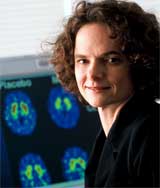|

 |
| Nora D. Volkow, M.D., Director, NIDA
|
|
Welcome to the NIDA's web site for physicians and other health professionals. We hope the resources here will help you, your staff, and your patients stay current with the latest science-based facts on drug abuse and addiction. NIDA, an institute of the National Institutes of Health, is the world's leading source of science-based knowledge on preventing and treating drug addiction, a chronic, relapsing disease affecting the brain and behavior.
We have designed this site to be useful to your practice, given addiction's medical and other consequences. Cardiovascular disease, stroke, cancer, HIV/AIDS, hepatitis B and C, lung disease, obesity, and mental disorders can all be affected by drug abuse. Some of these effects occur when drugs are used at high doses or after prolonged use; however, some may occur after just one use.
Recognizing drug addiction as a chronic, relapsing disease characterized by compulsive drug seeking and use is critical to being able to identify and help those who have it. Drugs of abuse affect the brain by mimicking neurotransmitters (e.g., heroin or marijuana) or by altering their regulation and release (e.g., cocaine and amphetamine). In this way, they disrupt normal brain communication. Repeated disruptions in the brain's normal signaling processes can eventually lead to addiction - affecting the very circuits needed to exert good judgment and inhibitory control over actions. With these abilities "seized," the drug-addicted person will compulsively choose drugs, even in the face of devastating life consequences.
To interrupt this unremitting pattern requires comprehensive and long-term treatment and an understanding that addiction, like any chronic disease (e.g., high blood pressure, diabetes) has a high propensity for relapse, often requiring repeated treatments. Indeed, diabetes, asthma, and hypertension all have relapse rates (50-75 percent) similar to those for drug addiction. And as with other chronic diseases, many people suffering from drug addiction require a level of continuous care or support in order to be successful. Treatment can help people stay off drugs and recover function of compromised brain systems that enable motivation, memory, and initiation of drive.
For information on hotlines, counseling services, or publicly funded treatment options in your state, please contact the Substance Abuse and Mental Health Administration. Their National Drug and Alcohol Treatment Service can be reached by calling 1-800-662-HELP (4357) or online at www.findtreatment.samhsa.gov
Sincerely,
Nora D. Volkow, M.D.
Director
109604 since 5/25/07
|